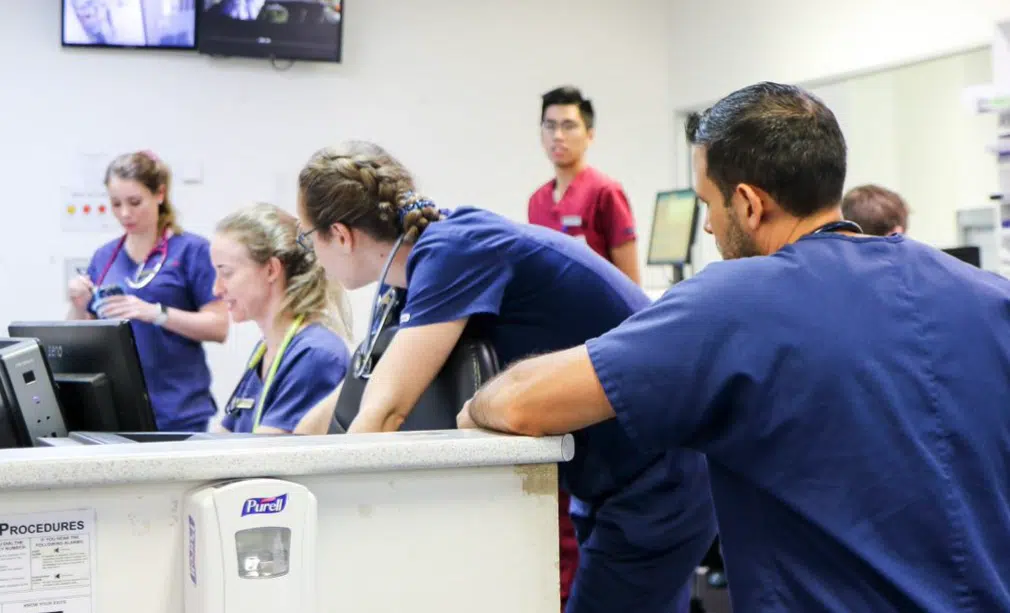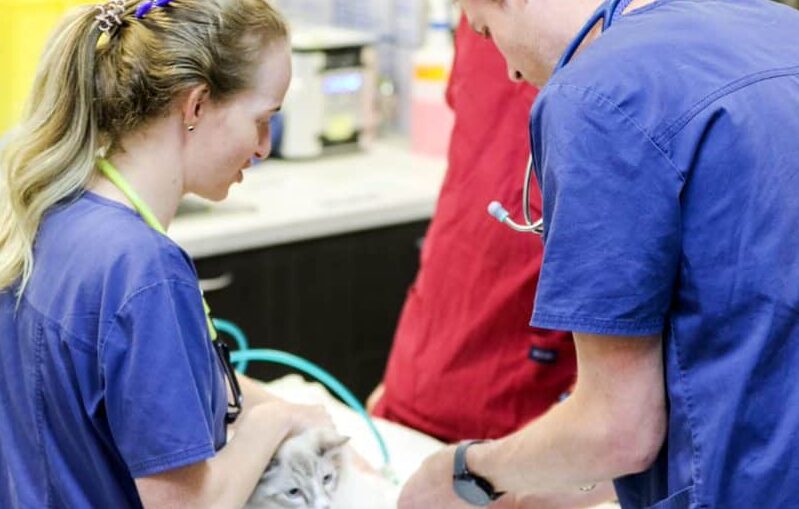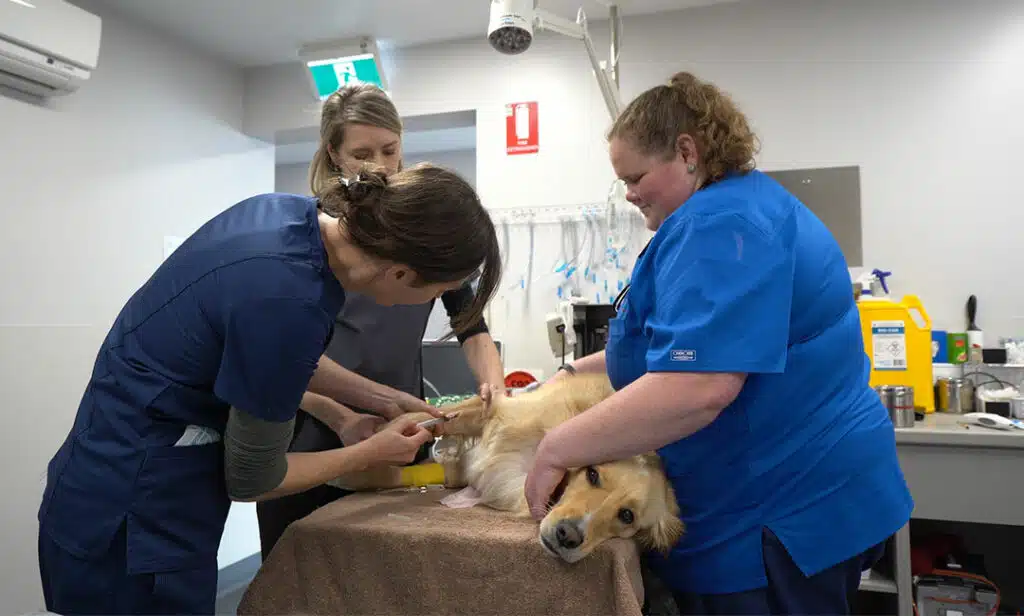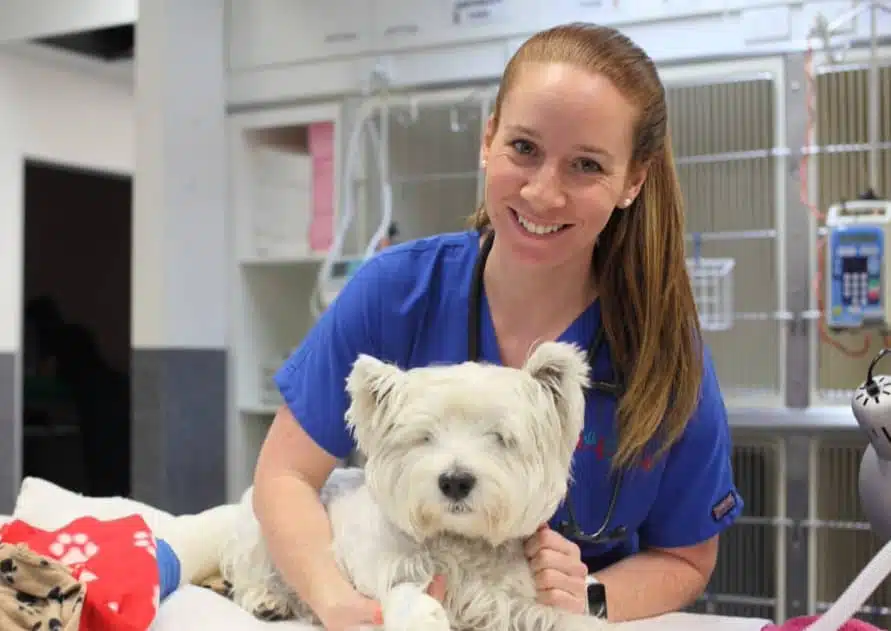In our previous article, we explored The 7 Key Differences Between GP and Emergency, giving you an overview of how these two fields differ. But when thinking about veterinary emergency, or even veterinary work in general, imagine putting together a picture puzzle. Most of the time, you’re lucky enough to have the entire picture of the puzzle to refer back to, making piecing the puzzle together far more structured. Now imagine if you didn’t have that picture – how would that change the situation, or even your mindset and way of approaching the situation?

Veterinary emergency can be like trying to pick what the picture is by simply looking at the pieces of the puzzle, and from there deciding what to do. Once you’ve figured that out, you can then work towards getting to put the puzzle together after. General practice on the other hand is still puzzle solving, but provides the picture to refer back to: you get more clues and getting to put the puzzle together is all done after seeing the picture.
To break this down even further, and explore the differences in mindset between these two situations, we’ve interviewed 4 of our emergency vets who have transitioned into emergency straight from university at our hospitals. What was their motivation for going into veterinary emergency? Throughout a series of questions focused on veterinary emergency, we’ll explore their responses. So join them in the video below and discover why they chose emergency:
We also asked each of these vets to discuss what they think about what kind of person is suited for emergency, specially the types of character traits that are helpful in thriving in an emergency setting. So explore these in the video above, or read about these characteristics in further detail below. While you’re reading or listening, take a moment to see if these apply to you:
Character Traits of Emergency Vets
Likes to Give Things a Go – “The Buzz”
Successful emergency veterinarians are the kind of people that put their hands up – and if you’re not the kind of person that does that, you can turn into that person just by starting to do it now. When you give things a go and put your hand up, you’ll likely find yourself getting an adrenaline buzz, particularly in the field of veterinary emergency.
Leadership and Teamwork
As a veterinarian, it’s almost like you become a leader on the floor regardless, because you are a veterinarian and both the team and clients will look to you for advice and guidance. Leadership qualities are something you can start to cultivate from the moment you enter the veterinary profession. You’ll also quickly understand that nothing in clinical practice can be achieved alone. Although you’ll work on your own initiative, you’ll never work in isolation to your team.
Takes Constructive Feedback
If you’re someone who feels uncomfortable about giving and receiving feedback, it’s possible to actively start to ask for feedback and begin to become more comfortable with it. Asking for feedback takes confidence, so it can be helpful to know how to get the most out of feedback. And feedback ultimately means that your team cares about you – they want to help you constantly improve, better yourself, and succeed.

Keeps Getting Up and Moving Forward
This is the nature of emergency. In the initial few years, we all make mistakes. Having the right environment will help you understand that making mistakes is part of the process, and will make sure you’re able to keep getting back up and moving forward. Until it becomes an ingrained process for you – eventually you’ll be able to make a mistake, learn from it, and focus on what’s next.
Client Communication
Communication is a vital skill that all vets will learn over time. Nobody is perfect straight out of university, and much of this is learned by doing. But with the right mentor, someone who can support and guide you, the transition to clinical practice and learning how to effectively communicate in a veterinary emergency setting will be so much easier.
Quick On Your Feet
In our previous article on the differences between GP and emergency, we discussed the concept of “task switching”. Veterinary professionals working in emergency practice need to be able to decide quickly on the best course of action to handle critical patients. With practice, it’s possible to learn these decision-making processes and how to think this way.

Ability to Handle Pressure
If you’re at university, it’s quite likely that you’re already familiar with feeling pressure and feelings of being overwhelmed. Vet school and exams will do that to anyone! However, it’s important to develop strategies to help you bounce back in these situations. Once you learn how to build resilience, it will become easier and easier to push through these times.
Confidence in Yourself
Veterinary professionals won’t necessarily have confidence in themselves from the very start, but instead should have confidence in their own abilities to work through cases. Building confidence will come with time and experience, and having the right learning environment will ensure that you become more confident with each case that you treat.
Prioritises Health and Social Life
As much as career is incredibly important to all of us, the fundamentals of performance are all centred around health and being socially connected. Without this foundation and focus on your personal life, it’s not possible to build professional skills effectively. So think of your wellbeing first – don’t neglect the necessities of sleep, physical wellness, and an enjoyable and fulfilling social life.
Being Able to Laugh
The only thing you can do in some situations is laugh, because you might feel surreal. Laughing can be somewhat of a stress relief, a way of dealing with a challenging situation, and a way to bond and connect with your team. You’ll find that many veterinary professionals have a great sense of humour!
Could you relate to the above characteristics? Or maybe you might be thinking that these don’t accurately describe you. Either way, we encourage you to reflect on the past have there been situations where you have been a leader or needed to lead a team. It could have been group work at uni, team sports, or even where you’ve had to help resolve challenging conflicts with others. Think about situations where this was you and you’ll likely find that many of these characteristics do actually relate to you – start to see yourself as this sort of person.
To find out how these characteristics of successful emergency vets relates to clinical practice, explore our next article on The Learning Curve of Veterinary Emergency, or watch our full webinar on How to Transition From Uni to Emergency As a New Grad.




